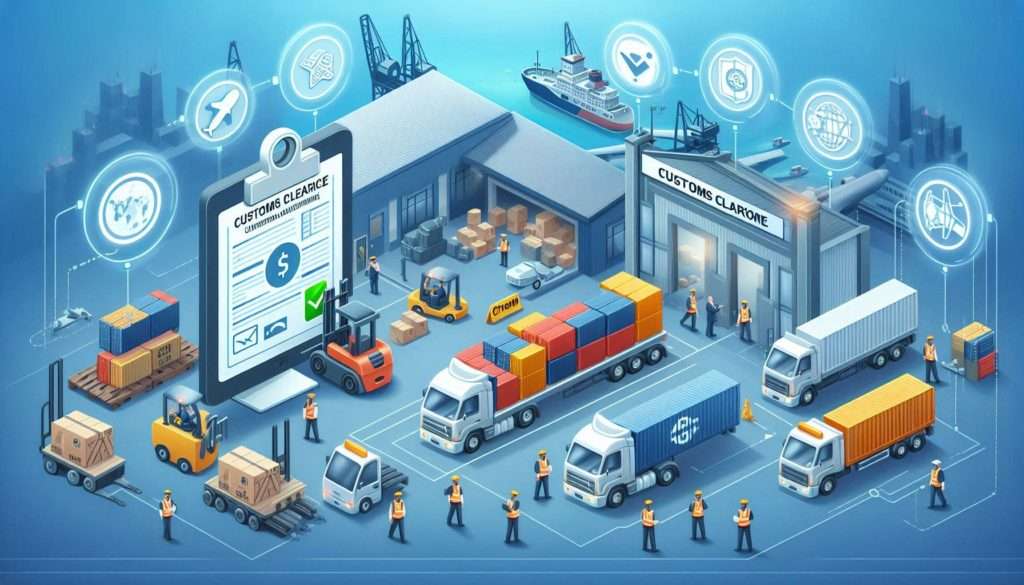Importer accreditation is the process by which the Bureau of Customs authorizes businesses to bring goods into the Philippines. This accreditation is essential for facilitating the smooth flow of trade while ensuring compliance with customs regulations and tax obligations.
The Bureau Of Customs
The Bureau of Customs (BOC) in the Philippines is at the core of importation regulations, tasked with assessing and collecting customs duties, taxes, and fees while enforcing laws to prevent smuggling and safeguard local industries. Businesses seeking accreditation undergo a rigorous application process involving the submission of essential documents like permits, tax IDs, and financial proofs. The BOC carefully evaluates each application to ensure compliance with regulations. Accredited importers enjoy benefits such as faster customs clearance and preferential treatment for certain goods, but they also bear responsibilities like timely payment of duties, accurate declaration of imports, and adherence to customs procedures.
Subscribe to the Ex-works24/7 newsletter
The Accreditation Management Office (AMO)
The Accreditation Management Office (AMO) within the Bureau of Customs (BOC) in the Philippines is responsible for overseeing the accreditation process for customs brokers and other entities involved in importation and exportation activities. The AMO ensures that customs brokers meet the necessary qualifications and adhere to regulatory standards set by the BOC and other relevant government agencies. This office plays a crucial role in facilitating trade by ensuring that accredited customs brokers possess the requisite expertise and adhere to ethical and professional standards while assisting importers and exporters with customs clearance processes. Additionally, the AMO may also handle matters related to the renewal, suspension, or revocation of accreditation for customs brokers based on their compliance with regulatory requirements.
Understanding Importer Accreditation
The BOC requires all importers to be accredited or registered before they can process or clear their importations. This is mandated under existing rules and regulations to ensure proper compliance and monitoring.
Types of Importer Accreditation
- Non-Regular Importer (NRI): If you plan to import only once within 365 days, you can apply for registration as an NRI. The requirements and procedures are outlined in Customs Memorandum Order 46-2019.
- Regular Importer: For those who intend to import on a regular basis, BOC accreditation as a Regular Importer is necessary. The requirements and procedure for accreditation are detailed in Customs Memorandum Orders 08-2022 and 11-2014.
The Role of AMO The AMO is responsible for the CPRS for importers and customs brokers. It replaced the interim office and plays a pivotal role in the accreditation process.
Conclusion Accreditation with the BOC and AMO is a critical step for any importer in the Philippines. It ensures compliance with customs regulations and smoothens the importation process. By staying informed and following the proper procedures, businesses can effectively navigate the complexities of international trade.
Tired of navigating importation regulations solo? Our accreditation services streamline the process, ensuring smooth sailing through customs. Stay tuned for hassle-free importation solutions. GET A QUOTE HERE!.
Frequently
Asked Questions
Importer accreditation in the Philippines is the process by which a business or individual is formally recognized and registered as an authorized importer by the Bureau of Customs (BOC). This accreditation is required for businesses that wish to import goods into the country and is part of the government's effort to regulate trade, ensure compliance with customs laws, and streamline the importation process. Accredited importers are issued an Importer’s Accreditation Number (IAN), which is necessary for conducting customs transactions.
The processing time for importer accreditation can vary, but it generally takes 7 to 15 business days once all the necessary documents are submitted and found to be in order. Delays can occur if the application is incomplete or if additional documentation or verification is needed. Importers should ensure that all documents are accurate and complete to avoid delays in the accreditation process.
Any business or individual who intends to import goods into the Philippines must apply for importer accreditation. This includes:
- Corporations, partnerships, and sole proprietors involved in commercial importation.
- Non-resident importers or businesses based abroad that intend to import goods into the Philippines.
- Customs brokers who handle importation on behalf of clients may also need to ensure their clients are accredited.
The accreditation ensures that importers can legally engage in international trade and comply with Philippine customs laws.
The requirements for importer accreditation in the Philippines generally include:
- Valid Business Registration – Proof of business registration with the Securities and Exchange Commission (SEC) for corporations or the Department of Trade and Industry (DTI) for sole proprietors.
- Taxpayer Identification Number (TIN) – Issued by the Bureau of Internal Revenue (BIR).
- Financial Documents – Examples include bank statements, financial statements, or proof of capital.
- Proof of Business Address – A copy of a lease agreement or utility bill showing the business location.
- Valid Identification – For the applicant (if a sole proprietor) or the authorized signatory (for corporations).
- Specialized Licenses (if applicable) – Depending on the type of goods being imported (e.g., food, chemicals), additional clearances from government agencies such as the Food and Drug Administration (FDA) or the Bureau of Plant Industry (BPI) may be required.
Applications are typically submitted through the Bureau of Customs’ Electronic Accreditation System (EASy).
There are several key benefits to obtaining importer accreditation in the Philippines:
- Legitimate Importation: Only accredited importers can legally import goods into the country.
- Access to Trade Facilitation Programs: Accredited importers may qualify for government programs designed to expedite customs processing, such as the Green Lane (fast-track) for high-compliance importers.
- Customs Compliance: Accreditation ensures that the importer is compliant with Philippine customs laws, reducing the risk of penalties and fines.
- Transparency: Importer accreditation provides a clear and accountable process for conducting business, which benefits both the importer and the government.
In short, importer accreditation ensures a smoother and legally compliant importation process while fostering trade transparency.




